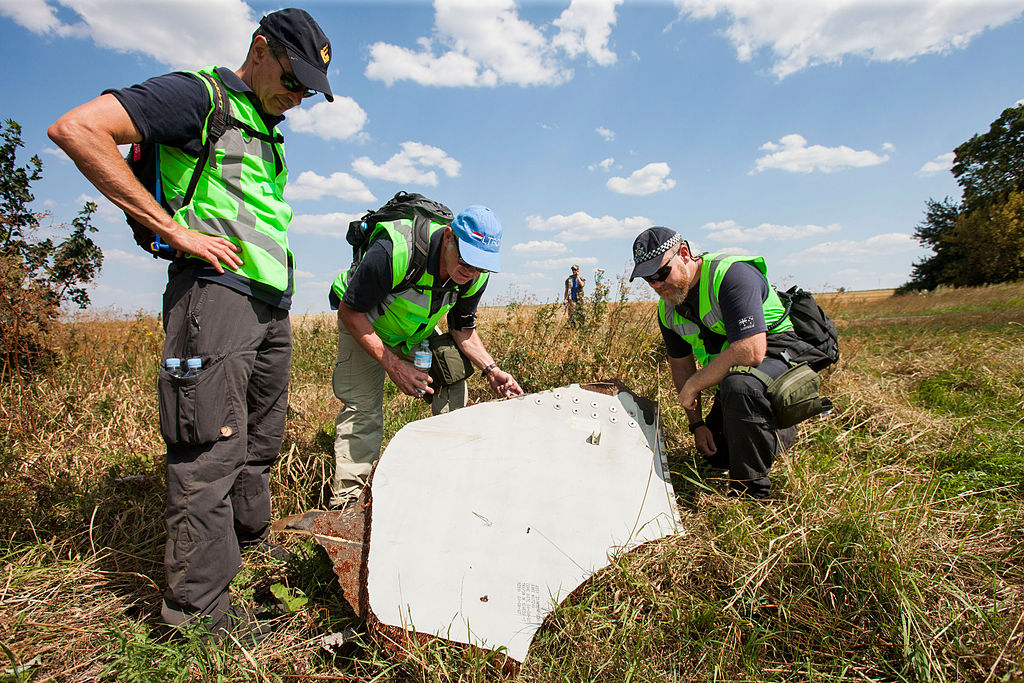

On July 17th, Malaysian Airlines flight MH-17 from Amsterdam to Kuala Lumpur fell out of the sky over eastern Ukraine. The crash killed everyone on board the plane, including 15 crew members and 283 passengers. Today, less than two months after the fact, the Dutch Safety Board published their preliminary investigation into the crash. Their findings strongly reinforce evidence that a sudden attack destroyed the plane in mid-air, sending it crashing into farmland in the middle of a civil war below.
What happened to the plane?
It’s very likely that something hit it from outside. This is supported by examination of the wreckage, and a lack of evidence for other problems.
The wreckage from the plane was found in an area approximately 3 miles wide by 6 miles long. The wide spread of the plane parts is a sign that the plane’s breakup happened in the air. While some major wreckage components have not been recovered, visible evidence is consistent with an attack from outside. From the report:
The report specifically states that there’s no indication that internal problems, either mechanical failure or poor plane operation, caused the crash. Instead:
Were There Signs Of Trouble?

By all appearances, and the data published in the preliminary investigation, there was nothing unusual about MH-17’s flight until it suddenly stopped at 4:20pm, Ukrainian local time.
The black box audio recorder showed no signs of tampering, and the black box audio recording “ended abruptly,” according to the report. “A replay of the [recording] did not identify any aircraft aural warnings of alerts of system malfunctions.”
As this is a preliminary report, there’s still more to analyze, but it helps to refute an unusual theory about the crash. Ukraine is currently fighting a war against Russian-backed separatists in Eastern Ukraine, and they’re using Su-25 ground attack planes as part of that fight. Repeated by Russian state media, the theory holds that a Ukrainian Su-25 flew within range of MH-17, and then shot it down with an air-to-air missile. The Su-25 can’t fly as high as MH-17 was when it was hit, and now evidence shows that the airliner pilots didn’t mention seeing anything unusual, like a nearby fighter jet.
What’s Left Unanswered?
The report doesn’t name the specific weapon that brought down the plane, leaving the explanation at “large number of high energy objects that penetrated the aircraft from outside.”
Other evidence from the crash points to a Soviet-designed Buk missile as the culprit. The day MH-17 went down, Ukrainian interior minister, Anton Gerashenko attributed the crash to a Buk missile fired by separatists. Three separate eyewitnesses told BBC Panorama they saw a Buk missile launcher in the area in the hours before the crash. The citizen investigative journalism site Bellingcat used photographs and videos from locals to trace the July 17th path of the missile launcher in Eastern Ukraine. Matching license plate numbers and vehicle markings, Bellingcat also claims to have traced the specific Buk missile launcher back from Donetsk to Russia.
